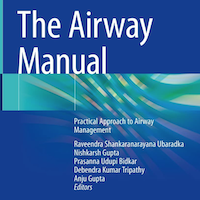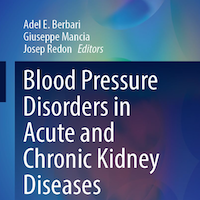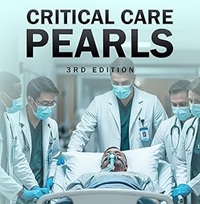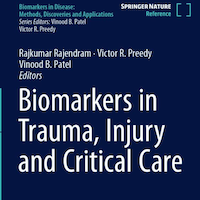Tag: diagnosis
Precision at Scale: Automating the SOFA Score for Smarter ICU Care
The Sequential Organ Failure Assessment (SOFA) score is a vital tool for diagnosing sepsis and predicting patient outcomes in the ICU, but its manual calculation is often plagued by human error and scalability issues. To... read more
Hemodynamic Monitoring Using Echocardiography in the Critically Ill
The hemodynamic evaluation of patients with acute circulatory failure and respiratory failure has in the past usually been performed using invasive procedures but in recent years less invasive monitoring devices have been... read more

Predicting Sepsis Mortality: The Power of NLR and PCT Clearance
A retrospective cohort study analyzed the dynamic changes of several inflammatory biomarkers to predict mortality in 64 Intensive Care Unit (ICU) patients diagnosed with sepsis. The study, which collected clinical and... read more
Copine 5: A Key Defender Against Sepsis’s Deadly Leak
This study identifies Copine 5 (CPNE5) as a critical factor in the development of life-threatening sepsis-induced vascular leakage and mortality. Analysis of human aorta cells revealed that CPNE5 is the primary Copine family... read more
Neuro-ICU Admissions: Lower Mortality, Higher Disability Risk
This large-scale retrospective cohort study analyzed the clinical and epidemiological profiles of over 62,000 Intensive Care Unit (ICU) patients across seven hospitals, finding that the 10,884 patients admitted for primary... read more
The Crystal Ball of the ICU: Machine Learning Predicts Who’s Staying and Who’s Not
The PREMIER Study dove into the data of 996 patients experiencing Acute Hypoxemic Respiratory Failure (AHRF) who had been on mechanical ventilation (MV) for at least two days, aiming to develop a reliable way to predict their... read more
Predicting Transfusion Risks to Power Safer Blood Management
This systematic review analyzed the use of Artificial Intelligence (AI) models over the past decade in identifying and predicting Adverse Transfusion Reactions (ATRs) and their implications for clinical management. The... read more
Sepsis Danger: High Ferritin Levels Flag Risk of Acute Liver Injury
This study used data from the MIMIC-IV database (training group) and an external hospital dataset (clinical validation group) to develop and validate a prediction model for sepsis-associated acute liver injury (SALI). The... read more
Low Phosphate Linked to Extended Hospitalization in Neonatal Sepsis
This retrospective cohort study investigated the relationship between serum phosphate levels and outcomes in neonates with sepsis using data from the Pediatric Intensive Care (PIC) database. Lower serum phosphate levels... read more
Lung Ultrasound Speeds Up VAP Diagnosis and Improves ICU Outcomes
This prospective randomized controlled study investigated whether using Lung Ultrasound (LUS) as a primary bedside tool for diagnosing Ventilator-Associated Pneumonia (VAP) could outperform the standard radiological approach... read more
Handbook for Venous Thromboembolism
A truly practical guidebook for anyone who needs the key information on the diagnosis, management and prevention of venous thromboembolism. Specific areas of focus include understanding the risk factors for VTE and the role... read more

Managing a Critically Ill Patient with HIV, TB, and COVID-19
Treating a patient with HIV, active tuberculosis (TB), and COVID-19 is an immense clinical challenge due to the complex interplay of these three infections. This rare but dangerous combination significantly increases the... read more
The Role of Neuroimaging in Brain Death Diagnosis
Brain death remains a medically and ethically complex topic, due to its religious and philosophical implications, despite the attempt to "scientificise" what is death and what is not. BD is characterized by a lack of universal... read more
Red Book: Report of the Committee on Infectious Diseases
Extending an 8-decade tradition of excellence, Red Book® provides the most reliable and clinically useful information on the manifestations, etiology, epidemiology, diagnosis and treatment of more than 200 childhood infectious... read more

Serum MANF vs. Severity and Prognosis in Community-acquired Pneumonia Patients
This evidence demonstrated that serum mesencephalic astrocyte-derived neurotrophic factor (MANF) is positively associated with scoring criteria and poor prognosis in community-acquired pneumonia (CAP) patients. Serum... read more
Holy Water Not so Holy: Potential Source of Elizabethkingia Pneumonia and Bacteremia in an Immunocompromised Host
This case report highlights that E. anophelis may indeed cause significant infection and should not be considered a contaminant especially in immunosuppressed individuals. The organism originates from water sources and may... read more
Clinical Characteristics and Survival Outcomes of Invasive Pulmonary Aspergillosis Patients
Invasive pulmonary aspergillosis (IPA) is a severe infectious disease caused by Aspergillus spp. It is associated with high mortality, particularly in immunocompromised patients, as well as in those with COVID-19 pneumonia... read more
Increased Sodium Levels Associated with Ceftriaxone Administration
Serum sodium elevation is considered a frequent manifestation in critically ill patients, with significant clinical outcomes and requiring timely management. This case report suggests a possible association between the... read more
Dynamic Left Ventricular Outflow Tract Obstruction Induced by IABP in Patient with Angioedema
Mechanical circulatory support with intra-aortic balloon pump (IABP) can aid in the treatment of cardiogenic shock but may rapidly become detrimental due to the reduction in systolic arterial afterload in patients with predispositions... read more
Management of ARDS COVID-19 Patients Using Hemoperfusion and CRRT
Combined hemoperfusion (HP) and continuous renal replacement therapy (CRRT) hold promise as a potential intervention for severe COVID-19 cases with multiple organ dysfunction, leading to improved clinical outcomes. Fifty-six... read more
VAP Recurrences Definition: European Experts Consensus
This consensus by European experts proposes four different ventilator-associated pneumonia (VAP) recurrence entities which should facilitate the harmonization of recurrence criteria for clinical practice and future studies. Thirty-six... read more
Sepsis: Staging and Potential Future Therapies
Sepsis is a life-threatening organ dysfunction caused by a dysregulated host response to infection. Variability in pathogenesis and complex pathophysiology often delay diagnosis and create significant challenges for clinical... read more










